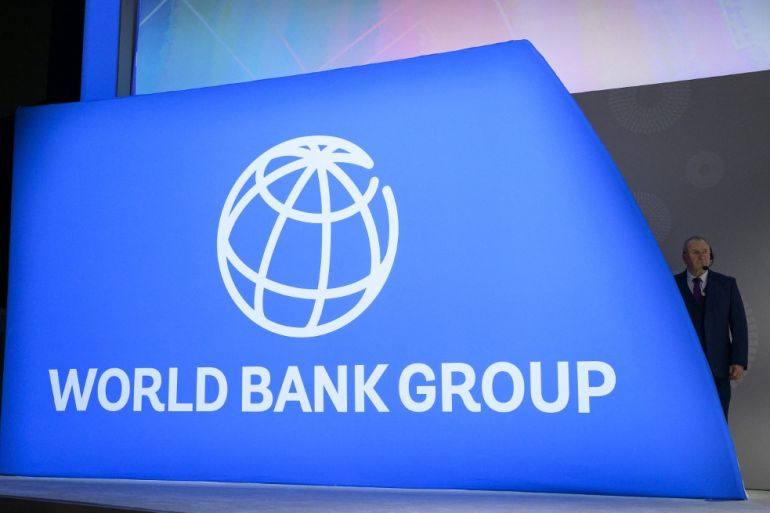World Bank says Syria eligible for new loans after debts cleared
Saudi and Qatari payments settle Syria’s arrears, allowing World Bank and IMF to re-engage.

Published On 16 May 202516 May 2025
The World Bank says it will restart operations in Syria following a 14-year pause after the country cleared more than $15m of debt with financial backing from Saudi Arabia and Qatar.
The United States-based institution announced on Friday that Syria no longer has outstanding obligations to the International Development Association (IDA), its fund dedicated to low-income countries.
Recommended Stories
list of 3 itemsend of list
Earlier this week, Saudi Arabia and Qatar paid off Syria’s outstanding debts of approximately $15.5m, paving the way for renewed engagement with international financial bodies.
“We are pleased that the clearance of Syria’s arrears will allow the World Bank Group to reengage with the country and address the development needs of the Syrian people,” the bank said. “After years of conflict, Syria is on a path to recovery and development.”
The bank is now preparing its first project in Syria, which will focus on improving electricity access — a key pillar for revitalising essential services like healthcare, education, and water supply.
Advertisement
Officials said it marks the beginning of expanded support aimed at stabilising Syria and boosting long-term growth.
US to lift sanctions on Syria
The bank’s announcement coincides with a dramatic shift in US policy towards Damascus.
US President Donald Trump announced on Tuesday that Washington would begin lifting sanctions imposed on Syria, including measures under the Caesar Syria Civilian Protection Act.
On Wednesday, Trump met Syria’s President Ahmed al-Sharaa on the sidelines of the GCC summit in Riyadh, marking a historic breakthrough in relations between the countries and the first such meeting between the two nations’ leaders in 25 years.
Secretary of State Marco Rubio confirmed that waivers would be issued, easing restrictions on entities previously penalised for dealings with the now former administration of Bashar al-Assad, which was toppled in December.
“Lifting sanctions on Syria represents a fundamental turning point,” Ibrahim Nafi Qushji, an economist and banking expert, told Al Jazeera. “The Syrian economy will transition from interacting with developing economies to integrating with more developed ones, potentially significantly reshaping trade and investment relations.”
The moves represent a significant moment in Syria’s reintegration into the global financial system after 13 years of civil war and isolation.
In April, a rare meeting was held in Washington involving officials from Syria, the IMF, the World Bank, and Saudi Arabia. A joint statement issued afterwards acknowledged the dire state of Syria’s economy and promised coordinated efforts to support its recovery.
Advertisement
The International Monetary Fund has since named its first mission chief to Syria in more than a decade. Ron van Rooden, previously involved with IMF operations in Ukraine, will lead the Fund’s renewed engagement.
Martin Muehleisen, a former IMF strategy chief, noted the urgency of providing technical assistance to rebuild Syria’s financial institutions. “Those efforts could be funded by donors and grants in-kind,” he told the news agency Reuters, adding that some support could begin within months.
Al-Assad was toppled after a lightning offensive by opposition fighters led by the Hay’et Tahrir al-Sham armed group last December.
Syria’s new government has sought to rebuild the country’s diplomatic ties, including with international financial institutions. It also counts on wealthy Gulf Arab states to play a pivotal role in financing the reconstruction of Syria’s war-ravaged infrastructure and reviving its economy.
The government, led by interim President al-Sharaa, also wants to transition away from the system that gave al-Assad loyalists privileged access to government contracts and kept key industries in the hands of the al-Assad family.
